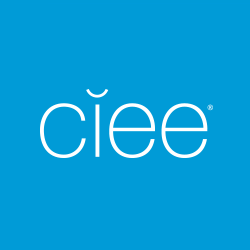Is a J-1 specialist right for you?
Do you have questions about the J-1 specialist visa? You are not the only one! Many companies and international professionals want to know if the J-1 specialist category is the right fit for their needs. The answers can be a bit nuanced, since regulations for the J-1 specialist category are short and somewhat open to interpretation. If you are considering using the J-1 specialist program, we are here to help! Here are the five most important points to consider when determining if the J-1 specialist program is right for you:
1. A specialist is defined as an expert in a field of specialized knowledge or skill.
Most J-1 visa categories have black and white applicant eligibility requirements, usually related to the applicant’s academic and professional background. However, the J-1 specialist eligibility requirements are somewhat subjective. To be eligible for a J-1 specialist visa, the applicant needs to be considered an “expert in a field of specialized knowledge or skill.” While there are no specific academic or professional experience requirements for the J-1 specialist, an applicant’s resume will need to show evidence that they are an “expert” in their field. We have a great deal of experience in determining J-1 specialist eligibility and can answer any eligibility questions you have.
2. The purpose of the J-1 specialist program is to facilitate an interchange of knowledge and skills between the J-1 specialist and American specialist colleagues.
When determining if the proposed role at a host organization is a good fit for a J-1 specialist, the first question we ask is: who will the J-1 specialist work with at the host organization? The purpose of the J-1 specialist is to share knowledge and skills with the U.S. specialists employed by the host organization. The U.S. specialist should be experts in the same or similar field as the J-1 specialist. The J-1 specialist should not come to the U.S. to share their knowledge with someone who cannot be defined as a specialist, or anyone not employed by the host organization.
3. The specialist comes to the U.S. for the purpose of observing, consulting, and/or demonstrating their special skills.
A J-1 specialist’s role should primarily be to observe and consult – they will receive and share knowledge and skills with other U.S. specialists. The J-1 specialist should not come to the U.S. to complete specific tasks as an employee would, but instead share their knowledge and experience on how to complete those tasks. Of course, there may be situations where the only way to share their knowledge is to do the work itself. In this case, a specialist may be able to complete specific tasks as a traditional employee would for the purpose of demonstrating their special skills to U.S. specialist colleagues.
4. The specialist cannot fill a permanent or traditional employment position with the host organization.
A J-1 specialist should not step outside their observing and consulting roles in order to complete specific tasks for the host organization (except to demonstrate skills). The specialist should come to the U.S. to provide specific information and knowledge to U.S. employees so that those employees can use this information in their work. For example: A J-1 specialist with an expertise in software engineering can educate U.S. software engineers how to use a new software design program the specialist helped create. However, the specialist should not be hired as a software engineer in order create new applications for the company.
5. Most organizations can host a J-1 specialist if the applicant and specialist role meet items 1-4.
The regulations leave some room for interpretation regarding the types of companies that can host specialists. The regulations list examples of the types of companies one might expect would host a specialist: scientific institutions, government agencies, museums, corporations, libraries, and similar types of institutions. However, other companies that do not specifically fit within this list may be able to host a specialist in certain circumstances if the requirements listed in items 1 through 4 are met.
Do you still have questions? We have the answers! Please complete the contact us form and one of our J-1 visa experts will be in touch. We look forward to hearing from you!
Daniel Katyl - Account Manager, CIEE Professional Exchange Programs
CIEE is a nonprofit study abroad and intercultural exchange organization that transforms lives and builds bridges between individuals and nations by sponsoring a wide variety of opportunities for the exchange of ideas and experiences. CIEE is a sponsor of the U.S. Department of State’s BridgeUSA program including the following J-1 visa designations: Professor, Research Scholar, Short-Term Scholar, Trainee, Intern, Secondary School Student, Specialist, Camp Counselor, and Summer Work Travel.

